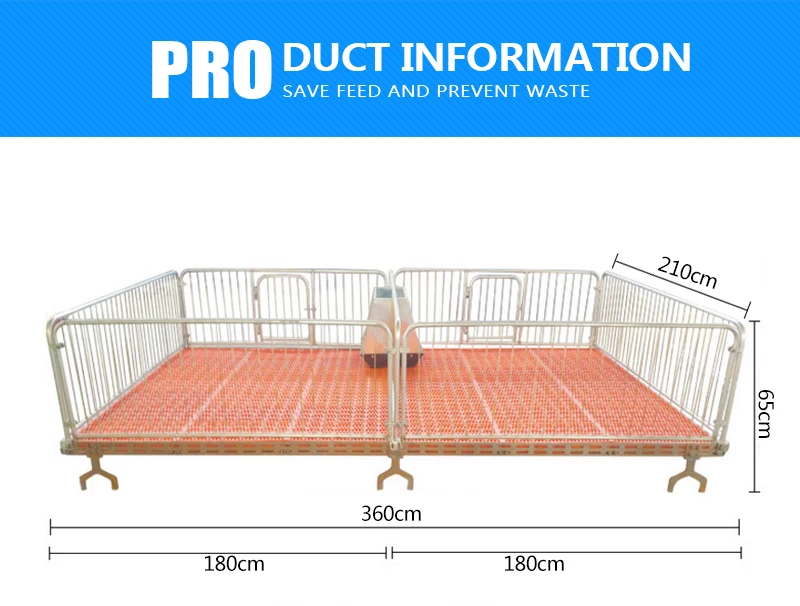hog feed mixer
Nov . 23, 2024 05:12 Back to list
hog feed mixer
Understanding Hog Feed Mixers A Key to Efficient Livestock Nutrition
In the world of hog farming, the nutrition of pigs plays a pivotal role in their growth, health, and overall productivity. One of the essential tools that farmers utilize to ensure that their pigs receive a balanced diet is the hog feed mixer. This equipment allows for the efficient blending of various feed components, enabling farmers to create optimal feed mixtures tailored to the specific nutritional needs of their livestock.
What is a Hog Feed Mixer?
A hog feed mixer is a specialized machine designed to combine different types of feed ingredients into a homogeneous mixture. These mixers can handle various ingredients, including grains, proteins, vitamins, minerals, and other additives. The primary goal of using a feed mixer is to produce a consistent and nutritionally balanced feed that enhances weight gain, improves feed efficiency, and supports the overall health of the pigs.
Types of Hog Feed Mixers
There are several types of hog feed mixers available on the market, each designed to cater to different farming needs
. Here are the most common types1. Vertical Feed Mixers These mixers utilize a vertical auger to lift and mix the feed ingredients. They are capable of thoroughly mixing wet and dry components and are often praised for their efficiency and ease of use.
2. Horizontal Feed Mixers Unlike vertical mixers, horizontal feed mixers use a horizontal auger. They are typically more suitable for larger operations, as they can handle larger volumes of feed and provide a consistent mixture.
3. Batch Mixers These mixers work by processing a specific batch of feed at a time. They allow for precise control over the mixture and are ideal for farms that require customized feed formulations.
4. Continuous Mixers These systems provide a continuous flow of feed mixing, making them suitable for large-scale operations that require constant feed supply.
The Importance of Proper Mixing
hog feed mixer

Proper mixing is crucial for several reasons. First, it ensures each pig receives an even distribution of nutrients. Inaccurate mixing can lead to feed segregation, where some pigs receive too much of one nutrient and too little of another. This imbalance can adversely affect their growth and health.
Moreover, well-mixed feed contributes to better digestibility. When ingredients are uniformly blended, the digestive enzymes in pigs can more effectively break down the nutrients, leading to improved feed conversion rates.
Factors to Consider When Choosing a Hog Feed Mixer
When selecting a hog feed mixer, farmers should consider a few critical factors
1. Capacity The size of the mixer should match the scale of production. Larger operations may require mixers with greater capacity to meet their feeding demands.
2. Type of Ingredients Depending on the feed formulation, farmers may need a mixer that can handle specific types of ingredients, such as wet feeds or bulky components.
3. Ease of Use and Maintenance It's essential to choose a mixer that is user-friendly and easy to clean. Regular maintenance helps prolong the lifespan of the equipment and ensures optimal performance.
4. Cost-effectiveness While initial investment is crucial, farmers should also consider the long-term costs associated with operating the mixer, including energy consumption and maintenance.
The Future of Hog Feed Mixing
As technology advances, so too do the innovations in hog feed mixing. Modern mixers are increasingly equipped with digital monitoring systems, allowing farmers to track the nutritional composition of their feed batches accurately. Additionally, automated and programmable mixers can optimize feed production, reducing labor costs and increasing efficiency.
In conclusion, hog feed mixers are indispensable tools in modern pig farming. They play a vital role in ensuring pigs receive balanced, nutritious diets that promote healthy growth and development. By understanding the different types of mixers available, the importance of proper mixing, and the factors to consider when choosing a mixer, farmers can significantly enhance their operations and, ultimately, support the welfare of their livestock. Investing in the right hog feed mixer can lead to improved productivity, healthier pigs, and a more profitable farming enterprise.
-
Automatic Feeding Line System-Pan Feeder Nipple Drinker|Anping County Yize Metal Products Co., Ltd.
NewsJul.29,2025
-
Hot Sale 24 & 18 Door Rabbit Cages - Premium Breeding Solutions
NewsJul.25,2025
-
Automatic Feeding Line System Pan Feeder Nipple Drinker - Anping County Yize Metal Products Co., Ltd.
NewsJul.21,2025
-
Automatic Feeding Line System Pan Feeder Nipple Drinker - Anping County Yize Metal Products Co., Ltd.
NewsJul.21,2025
-
Automatic Feeding Line System - Anping Yize | Precision & Nipple
NewsJul.21,2025
-
Automatic Feeding Line System - Anping Yize | Precision & Nipple
NewsJul.21,2025






